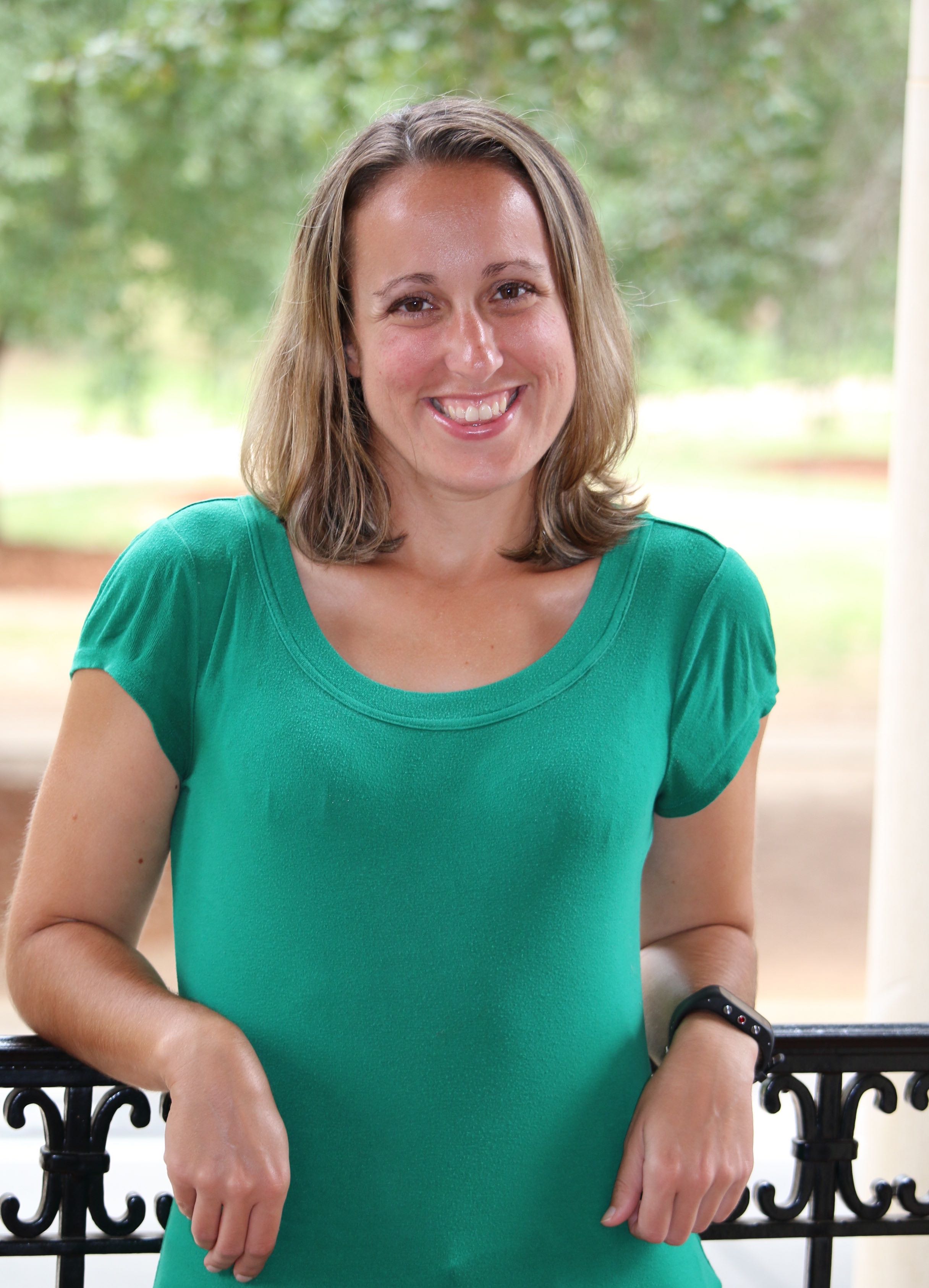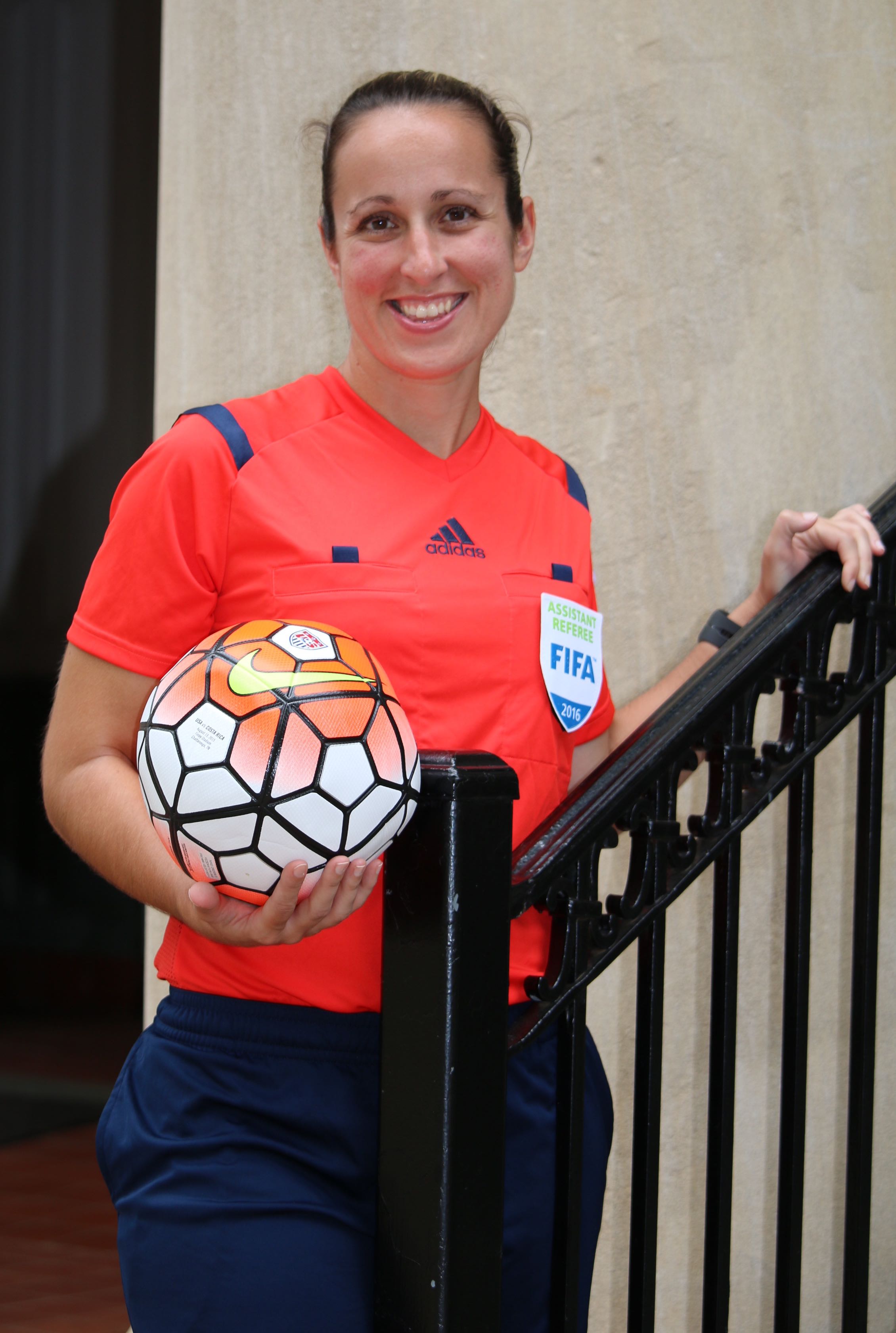
Amanda Ross is comfortable with the pressure of being in front of large crowds. As a matter of fact, she thrives under pressure. Sometimes it comes from lecturing in front of as many as 300 impressionable students. Other times, it comes from Ross stepping onto a field amid the thunderous screams of thousands of professional soccer fans. Dr. Ross, a recent faculty hire for the economics department in the Culverhouse College of Commerce, has been a member of the FIFA International Panel of Referees and Assistant Referees for the past three years. However, she has been refereeing in general for nearly 19 years.
Growing up in Rochester, New York, Ross began playing soccer at a very early age. When she was 13 years old, her love for the game helped her transition into her first part-time job as a referee. “It was a good way to make some money and be involved in the game that I played,” Ross says. “And then it turned out I was kind of good at it. And they just kept moving me up the ranks, until I got here [referee for FIFA].”
Ross decided to stop playing soccer after high school, but continued to referee. She then went on to attend Binghamton University to complete her undergraduate coursework. After graduating with her master’s and doctorate degrees from Syracuse University, Ross went to teach in the economics department at West Virginia University. She stayed at WVU for five years before deciding to accept her faculty position at The University of Alabama’s Culverhouse College of Commerce.

“I thought it was an opportunity to move into a better school, a better program,” Ross says. “I feel the University is growing, and it seemed like a good idea and a right time to move.”
Ross says the teaching and refereeing simultaneously require practice and flexibility. Instead of relaxing on her flights to soccer games, Ross spends her time working on research and grading assignments. She says it’s also extremely helpful when the University understands some of the demands of her schedule.
“Everyone here has been very accommodating,” Ross says.
Along with balancing the workload for both jobs, Ross is also expected to stay physically fit. She says that she works out six days a week, and is required to wear a heart rate monitor at all times so her trainers are able to review the recorded data. The trainers also send Ross different workouts depending on the nature of the game that she’ll be refereeing.
When asked about some of her most memorable games, Ross recalls refereeing the first match for the U.S. Women’s National Team right after they won the gold medal at the 2012 London Olympics. The
match took place in front of a sold out crowd at Sahlen’s Stadium, which just happens to be located in Ross’s hometown of Rochester. Fans watched U.S. forward Abby Wambach and teammates defeat Costa Rica 8-0. Wambach, who also calls Rochester home, was named FIFA World Player of the Year.
“Just to be a part of that right after the U.S. won the gold medal; after their first game back. And to have my family there; that game was just awesome,” says Ross.
Ross has also refereed the Central American and Caribbean Games, U-20 World Cup Qualifying Tournament and various other international games. Her next game will take place in October in Salt Lake City, Utah where the U.S. is scheduled to play Switzerland.
Being a member of the international panel has  not only allowed Ross to participate in one of her biggest passions, it has also helped her develop new skills in another. She says that refereeing for such large crowds has helped her better communicate with her students in large classes. And she says talking about her job as a soccer referee has helped students relate to her on a more personal level.
not only allowed Ross to participate in one of her biggest passions, it has also helped her develop new skills in another. She says that refereeing for such large crowds has helped her better communicate with her students in large classes. And she says talking about her job as a soccer referee has helped students relate to her on a more personal level.
“I think it helps make me human,” she says. “I think that really helps students in terms of approachability. Coming to talk to you about various things, they get to see another side of you.”
